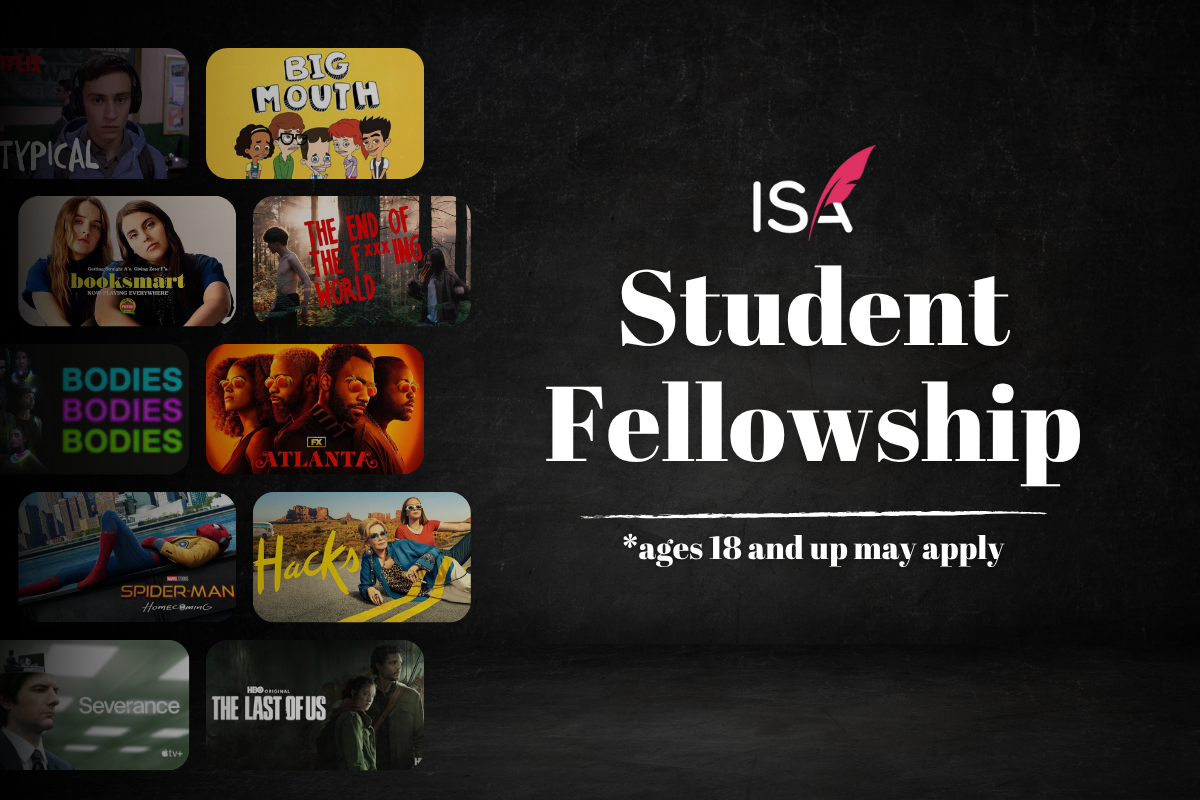Scratch Offs in Screenwriting
Larry Postel has seen his share of screenwriting job offers that sounded too good to be true. Here are some to be aware of and how to protect yourself.
One day, when I was around eight years old, my parents received a promotional postcard in the mail from a Chrysler dealership across town. It had a gray square scratch off – and the instructions said if it had the word “Winner” underneath, you won either a console color TV, $500 in cash…or a map of the United States.
All you had to do was go into the dealership to claim your prize.
I immediately grabbed a nickel from my mom’s purse and scratched that square right off. Underneath in big bold letters: WINNER.
I remember being so excited, like Charlie finding the golden ticket. I told my dad that we had to go into the dealership right away to claim our prize – and I knew it was going to be the console color TV. But even if it was $500, that was okay, too. No way did I think it would ever be the map.
My dad didn’t want to take the long drive to that dealership, but I nagged the hell out of him, so he finally gave in and said we’d go on Saturday.
Saturday came and we arrived at the dealership. A salesman greeted us on the lot. I removed the postcard from the Ziploc plastic bag where I had put it for safekeeping. The salesman took the card and went inside the showroom for a minute, then came back with my crummy new U.S. map. Needless to say, I was crushed.
On the drive home, my dad said he knew all along that it was going to be the map. He then went on to explain the old adage, “If it seems too good to be true, it usually is.” He said that he wanted me to see for myself that you don’t get anything free in this world…that you have to work hard to get anything of value. And then he explained the word “gimmick” – and also the concept of “bait and switch.”
It was a lesson I never forgot…until years later when I began my screenwriting career. Granted, I never saw any scratch-off promotions targeting screenwriters. However, that’s not to say I haven’t seen my share of offers that sounded too good to be true. Here are some, beginning with everyone’s favorite…
The Free Option
I don’t like to say never, but I will say that the vast majority of free options do not result in produced films. In most cases, they wind up wasting a writer’s time by tying up a screenplay for a year or more. And remember: When a producer options a screenplay, it means they have exclusive rights for whatever time frame is in your agreement (typically one year). In other words, you can’t market your screenplay yourself – or even accept a paid offer from another producer during the option period.
The fact is that a producer who doesn’t put at least some skin in the game isn’t as committed to your project as they might lead you to think. After all, who’s to say they’re not doing the same thing at the same time with other writers? If they can “rent” material for free, they likely are. The producer has nothing to lose.
Understandably, aspiring screenwriters are hungry for validation and a produced film. So, when a producer comes along with flattery and a free option offer, a writer may very well be tempted to take the bait. If you find yourself in the position of being offered a free option, I suggest the following:
- Google the hell out of the producer’s name and company. Don’t rely only on their IMDb credits – because that doesn’t tell you everything you need to know. Case in point: I had a friend who was seriously considering a free option offer from a producer with a few credits on obscure movies around a decade prior. My friend hadn’t checked anything other than IMDb, so I did the research for him by googling the producer’s name. I immediately found several complaints about the producer not only from screenwriters, but there were also bankruptcies and lawsuits to his name. My friend fortunately didn’t do the deal. As for the producer, he disappeared from the scene (and the industry).
- Also, regarding IMDb, you’ll find producers with several projects listed in development and preproduction, some even with attachments. Be sure to check the most recent date those listings were updated. Many are old and inactive. The last thing you want is your script to become another casualty in a long list of projects that will never see the light of day with a given producer.
- If you do your due diligence and still want to consider a free option offer, ask the producer as many questions as you’d like – such as how many other projects they’re developing and where yours stands in terms of priority. Also, do they already have funding – and if not, how do they plan on getting it? And what kind of purchase price are they willing to offer in the event they do succeed in setting up the project? If they seem evasive, that tells you all you need to know. Because if the producer isn’t forthcoming with the answers to the questions you ask, that’s not the type of producer you want to deal with anyway.
- If you’d still like to proceed after doing the above, tell the producer you want an agreement in writing. Then, if and when you do receive the agreement, hire an entertainment attorney to review it. Even if the producer isn’t paying you a dime and you have to pay an attorney out of pocket, it’s well worth it. As an example…
Before I had an entertainment attorney (and became a member of the WGA), I made the mistake of doing several free option agreements (on different screenplays) – and it never turned out well.
In one case, the producer didn’t include a rights of reversion clause in the agreement, which I didn’t even know about at the time – so I went ahead and signed the agreement as it was. After the option period expired, a solid agent who I subsequently cold queried wanted to represent the same script. However, he first wanted to be sure there was a clean chain of title - and he asked me if there had ever been any producers attached to the project. I told him about the previous producer who had optioned the script.
The agent then asked to see the option agreement. In reviewing it, he saw it didn’t include a rights of reversion clause stating the full rights reverted back to me after the option expired. So, he insisted on me going back to the producer and having him sign a letter stating he no longer had any rights to the project (thereby assuring the agent that the title was free and clear).
As requested, I went back to the producer, explained the situation and asked him to sign the letter. Not only did he refuse, but he said he felt he deserved some sort of compensation himself due to all the time he had spent trying to set up my screenplay (which, in reality, was very minimal). I went back to the agent and shared this info. He understandably said he wouldn’t proceed without the signed letter. And that was the end of that. If I had paid an attorney up front to review the free option agreement, I believe I wouldn’t have missed that opportunity with the agent.
Now, there are some writers who will tell you that a free option can be worth it -- because even if the producer doesn’t set up your script by the end of the option period, you’re still establishing a relationship for the future. Sure, that could happen, but you have to decide if it’s worth having your screenplay tied up for a year or more with a producer who has no vested interest.
Free shopping agreements, too…
There are also some who say a free shopping agreement is less risky than a free option because it’s typically for a shorter period of time, usually six months as opposed to a year. However, based on my experience, including a very recent shopping agreement, I urge you to treat a shopping agreement offer the same as an option by doing your due diligence with all the steps mentioned above – including paying an entertainment attorney to review any agreement if and when it gets to that point.
The Backend Offer
Just last week, a screenwriting student of mine told me that a producer recently made him an offer to write a feature-length screenplay for pay on the backend.
He asked my opinion – and I bet you can already guess my advice.
In these tough times, there are more and more producers who will tell you that they don’t have any development funds, so they can’t pay anything up front for an option. So, instead, they say you’ll be compensated after the project is completed, distributed and the producer gets paid. But the fact is that the vast majority of indie films never attain distribution and therefore never make a dime.
Similar to free options and shopping agreements, accepting a backend offer from a producer who has no skin in the game is a huge risk. However, if you find yourself intrigued by an offer like this, I’d again recommend following the same steps as above in doing your due diligence, then hiring an entertainment attorney to review any agreement.
However, I feel so strongly (and skeptical) about backend deals that I honestly don’t even think they’re worth paying an attorney. I’d personally pass on any offer like that – or at least ask the producer for a step deal where they pay you incrementally for steps along the way (i.e. a treatment, first draft, rewrite, polish, etc.). Chances are that all you’ll see of the producer when you make that request is his or her own back end as they walk away.
Paid Pitches
If you’ve been in the screenwriting game a minute, you’ve likely seen the various screenwriting sites where you can pay to pitch your screenplay to an executive, whether via Zoom, a written or video pitch – or in person at a Pitch Fest. In most cases, you’re pitching to lower-level producers/execs, but there are also pitches to agents and managers.
As with free options, shopping agreements and backend offers, I never say never – but I do believe it’s fair to say that paid pitches very rarely result in produced screenplays. Sure, you’ll see lots of testimonials on those sites with rave reviews from writers who had their scripts requested following their pitch(es). However, how many were actually purchased and produced? That’s the real goal, isn’t it?
I’ve read accounts of aspiring writers spending hundreds, even thousands of dollars on paid pitches with nothing to show for it (other than a handful of requests, if that). These writers may think the more pitches they make increases the chance they have of landing a deal (kind of like a lottery or raffle ticket), but the fact remains that there’s no shortcut or way around the hard work it takes to get your script produced. For the most part, the only ones benefiting from paid pitches are the sites and individuals that offer them.
With that in mind, if you’ve got money to burn and feel the need to try a round of paid pitches, go for it. But going back to what my dad told me (and what I’ve learned myself), there’s no substitute for hard work to achieve your goal. And in screenwriting, that means first writing a brilliant script with lots of heart and then working diligently to find a home for it. As for me, I’ve sold four screenplays via cold queries that were all produced. It can be done.
Paid Development and Marketing Services
Several years ago, after one of my cold query email campaigns to producers using IMDbPro, I received a response from a producer with some big time credits. However, the purpose of the response wasn’t to request my script. Instead, it was to sell me on their “Executive and Creative Development Services” with a range of packages starting at $2,000 and going all the way to $13,000. What I soon learned is that this producer had two divisions: One for actual producing - and the other to sell their development and marketing services to aspiring screenwriters. Needless to say, I passed.
This “producer” isn’t alone in offering this type of pricey development service. There are plenty of others that aggressively pursue writers with borderline promises to help sell your script by developing a comprehensive budgeting, scheduling, and marketing plan. There are also services and sites that charge to write loglines, query letters and create pitch decks. My two cents: If you’re a writer, save yourself the money (and disappointment) and do it yourself.
I should mention here that I’m not against paid screenplay analysts, as I’ve used the same one for many years and she’s helped me tremendously. But she sticks to the analysis – and I take it from there. A good screenplay analyst who charges a fair price is well worth it (in addition to free or low-cost peer review sites).
One other area I should briefly touch on is services that charge for query blasts. Yes, I tried them, too. And I’ve never spoken to one producer who reads them or one writer who has had a script produced by one of the recipients. While it sounds tempting to have a service blast out your query to thousands of industry people, it’s a waste of time and money. Remember: no shortcuts or substitutes.
If you’re a writer, you need to think as creatively about your marketing as you do in your writing. Tenacity is what it’s all about.
On a final note…
In closing, I should emphasize that I’m also not anti-producer by any means. I’ve worked with a lot of fantastic producers who were as honest as the day is long. What I am against is a producer or anyone else who takes advantage of writers (or any other artist). After all, screenwriting is hard enough without being exploited by those who know how insecure, vulnerable and in need of validation we are.
Larry Postel: Since 2020, Larry has had four original spec screenplays produced and released, including Sony's award-winning 5000 Blankets -- and the Netflix Family Original, The Main Event. He also wrote the Peacock Original comedy, High Holiday -- and the family sports drama, Flip Turn, which won "Best Film" at six international film festivals in 2024.
A proud WGAW member, Larry was recognized in 2020 as one of the top "25 Screenwriters to Watch" by the Austin Film Festival, where he also serves as a panelist. In the last three years, Larry has had four original spec screenplays purchased, produced, and released: The Main Event, a Netflix Original; High Holiday, a Peacock Original; Flip Turn, an indie film available on Amazon Prime; and Sony's 5000 Blankets, winner of the Movieguide Award as 2022’s most inspirational TV/streaming movie. Larry's next project is Sessions, starring London-based actor/producer Nicholas Pinnock.







![The Era of the Multi-Hyphenate: An Interview With Actress, Producer, and Writer Mildred Marie Langford [SERIES]](https://scriptmag.com/uploads/MjAxMDUyMzEwMjg4MjEzMzkz/the-era-of-the-multi-hyphenate-series-script.png?format=auto&optimize=high&width=1440)